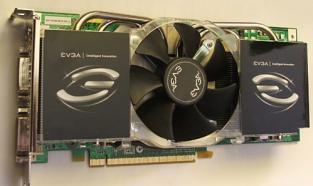OOPS! You forgot to upload swfobject.js ! You must upload this file for your form to work.
GlobalFoundries announced the availability of 7-nm process technology to start designing chips
![]()
|
xtreview is your : Video card - cpu - memory - Hard drive - power supply unit source |
|
|||
|
|
||||
 Recommended : Free unlimited image hosting with image editor
Recommended : Free unlimited image hosting with image editor
|
POSTER: computer news || GLOBALFOUNDRIES ANNOUNCED THE AVAILABILITY OF 7-NM PROCESS TECHNOLOGY TO START DESIGNING CHIPS |
DATE:2017-06-14 |
|
|
GlobalFoundries company officially announced that designers can start creating production solutions using 7-nm process technology 7LP FinFET (Leading-Performance). It can be productive mobile SoC, server or network processors. Compared with the process technology of 14 nm FinFET, the 7LP FinFET process technology will allow to increase productivity up to 40% and reduce the solution area by up to 50%. The declared gate density (transistors) in the 7LP FinFET process technology will be 17 million pieces per mm2. This is one of the important indicators, since for a number of layers it will be necessary to use three photomasks, which will increase the cost of production. So, a two-fold increase in the volume of output from one plate can partially offset the increase in costs for the production of 7-nm chips. The company specifies that the 7LP FinFET process technology is based on traditional immersion lithography and scanners in the 193 nm range. At the same time GlobalFoundries invests in the latest production equipment and, in particular, buys two EUV-units. Installation of EUV-scanners on the lines of Fab 8 in the US is scheduled for the fall of this year. For the processing of critical layers within the 7-nm process technology, these units will be ready somewhere in a year thereafter, but most likely, they will start commercial operations only in 2019. The first digital projects of 7-nm solutions in the company expect to receive in the first half of next year. At the same time, the production of the experimental 7-nm chips will be organized according to the orders of the first customers. All this should happen before the middle of 2018, so that in the second half of GlobalFoundries it could start mass production of 7-nm products. Ideally, GlobalFoundries will lag behind TSMC for six months. In fact, this gap can be up to nine months. | ||
|
|
||
|
xtreview is your : Video card - cpu - memory - Hard drive - power supply unit source |
|
|
|
|
||
|
Xtreview Support  N-Post:xxxx Xtreview Support        |
GLOBALFOUNDRIES ANNOUNCED THE AVAILABILITY OF 7-NM PROCESS TECHNOLOGY TO START DESIGNING CHIPS |
| Please Feel Free to write any Comment; Thanks  |
GlobalFoundries has become the worlds second largest manufacturer, which can produce solutions like AMD Vega (2017-08-17)
Part of the MediaTek processors will be released on the GlobalFoundries (2017-06-27)
GlobalFoundries announced the availability of 7-nm process technology to start designing chips (2017-06-14)
AMD will attract for the release of 7-nm products TSMC and GlobalFoundries (2017-05-19)
Last year, part of AMDs graphics solutions produced GlobalFoundries (2017-04-30)
GlobalFoundries is considering the possibility of reducing staff number (2017-04-10)
AMD, ARM and GlobalFoundries will have a common shareholder (2017-03-09)
GlobalFoundries announced the availability of RFSOI process technology on 45 nm (2017-02-22)
GlobalFoundries expands production of chips in the United States, China, Germany and Singapore (2017-02-12)
GlobalFoundries will not be the sole supplier of a 7-nm AMD products (2016-12-01)
GlobalFoundries is not going to use EUV-lithography within the 7-nm technology (2016-11-07)
China has suspended the establishment of joint ventures with GlobalFoundries (2016-10-23)
GlobalFoundries embedded memory adapts to the process eMRAM 22FDX (2016-09-19)
GlobalFoundries promises 7-nm products by 2018 (2016-09-16)
GlobalFoundries 12-nm process technology advantages in the form FD-SOI (2016-09-09)
AMD has amended the contract of work with GlobalFoundries (2016-09-01)
GlobalFoundries will produce chips for the US Department of Defense (2016-06-08)
GlobalFoundries creates a joint venture in China for the production of chips on the local market (2016-05-31)
GlobalFoundries has proposed SiGe process technology for the production of millimeter-wave radio solution (2016-05-24)
GlobalFoundries has managed to become the second largest contract manufacturer in revenue (2016-04-15)
![]()
To figure out your best laptops .Welcome to XTreview.com. Here u can find a complete computer hardware guide and laptop rating .More than 500 reviews of modern PC to understand the basic architecture


7600gt review
7600gt is the middle card range.
We already benchmarked this video card and found that ...

 geforce 8800gtx and 8800gts
geforce 8800gtx and 8800gts  Xtreview software download Section
Xtreview software download Section  AMD TURION 64 X2 REVIEW
AMD TURION 64 X2 REVIEW  INTEL PENTIUM D 920 , INTEL PENTIUM D 930
INTEL PENTIUM D 920 , INTEL PENTIUM D 930  6800XT REVIEW
6800XT REVIEW  computer hardware REVIEW
computer hardware REVIEW  INTEL CONROE CORE DUO 2 REVIEW VS AMD AM2
INTEL CONROE CORE DUO 2 REVIEW VS AMD AM2  INTEL PENTIUM D 805 INTEL D805
INTEL PENTIUM D 805 INTEL D805  Free desktop wallpaper
Free desktop wallpaper  online fighting game
online fighting game  Xtreview price comparison center
Xtreview price comparison center Lastest 15 Reviews


Rss Feeds
Last News
- The new version of GPU-Z finally kills the belief in the miracle of Vega transformation
- The motherboard manufacturer confirms the characteristics of the processors Coffee Lake
- We are looking for copper coolers on NVIDIA Volta computing accelerators
- Unofficially about Intels plans to release 300-series chipset
- The Japanese representation of AMD offered monetary compensation to the first buyers of Ryzen Threadripper
- This year will not be released more than 45 million motherboards
- TSMC denies the presentation of charges from the antimonopoly authorities
- Radeon RX Vega 64 at frequencies 1802-1000 MHz updated the record GPUPI 1B
- AMD itself would like to believe that mobile processors Ryzen have already been released
- AMD Vega 20 will find application in accelerating computations
- Pre-orders for new iPhone start next week
- Radeon RX Vega 57, 58 and 59: the wonders of transformation
- ASML starts commercial delivery of EUV-scanners
- The older Skylake processors with a free multiplier are removed from production
- Meizu will release Android-smartphone based on Helio P40
- AMD Bristol Ridge processors are also available in American retail
- The fate of Toshiba Memory can be solved to the next environment
- duo GeForce GTX 1080 Ti in GPUPI 1B at frequencies of 2480-10320 MHz
- New Kentsfield overclocking record up to 5204 MHz
- Lenovo released Android-smartphone K8

HALO 3 HALO 3 - Final Fight!

PREY Prey is something you don t often see anymore: a totally unigue shooter experience.

computer news computer parts review Old Forum Downloads New Forum Login Join Articles terms Hardware blog Sitemap Get Freebies


